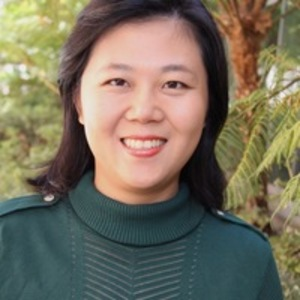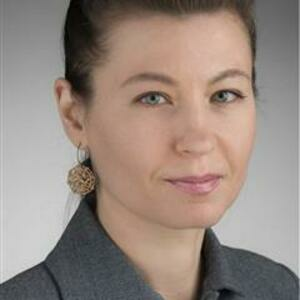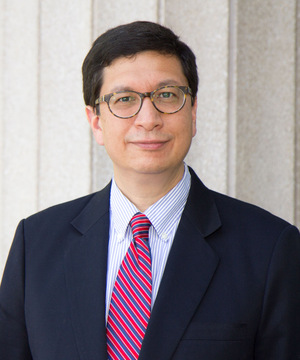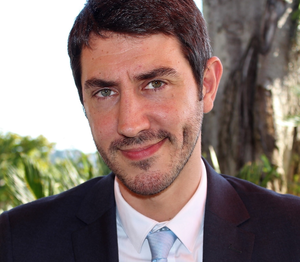Academic Board
 Madeline Carr is the Director of the UK-wide RISCS Institute which looks at the human and organizational factors of cybersecurity. She is also the Director of the Digital Technologies Policy Lab which supports policy making to adapt to the pace of change in society’s integration of digital technologies. Her research looks at the implications of emerging technology for national and global security, international order and global governance. Professor Carr has published on cyber norms, multi-stakeholder Internet governance, the future of the insurance sector in the IoT, cybersecurity and international law, and the public/private partnership in national cyber security strategies. Her book US Power and the Internet in International Relations is published by Palgrave MacMillan. Professor Carr was the Co-lead on the Standards, Governance and Policy stream of the UK’s £24M PETRAS research hub on the cyber security of the Internet of Things. She is now the lead on the International Strategy of the new PETRAS National Centre of Excellence in Cybersecurity of the IoT. Professor Carr is a member of the World Economic Forum Global Council on the IoT. She is also the Deputy Director of a new Centre for Doctoral Training in Cybersecurity at UCL which focuses on the interdisciplinary nature of these problems and Deputy Director of REPHRAIN, a new £8.6M consortium that will address issues around protecting citizens online.
Madeline Carr is the Director of the UK-wide RISCS Institute which looks at the human and organizational factors of cybersecurity. She is also the Director of the Digital Technologies Policy Lab which supports policy making to adapt to the pace of change in society’s integration of digital technologies. Her research looks at the implications of emerging technology for national and global security, international order and global governance. Professor Carr has published on cyber norms, multi-stakeholder Internet governance, the future of the insurance sector in the IoT, cybersecurity and international law, and the public/private partnership in national cyber security strategies. Her book US Power and the Internet in International Relations is published by Palgrave MacMillan. Professor Carr was the Co-lead on the Standards, Governance and Policy stream of the UK’s £24M PETRAS research hub on the cyber security of the Internet of Things. She is now the lead on the International Strategy of the new PETRAS National Centre of Excellence in Cybersecurity of the IoT. Professor Carr is a member of the World Economic Forum Global Council on the IoT. She is also the Deputy Director of a new Centre for Doctoral Training in Cybersecurity at UCL which focuses on the interdisciplinary nature of these problems and Deputy Director of REPHRAIN, a new £8.6M consortium that will address issues around protecting citizens online.
 Yu Hong (洪宇 ) taught at the Annenberg School for Communication at University of Southern California for six plus years. After this she joined Zhejiang University as a “100-Talents Program” Young Professor (Level A) in Fall 2017 and has served as vice dean of the College of Media and International Culture, director of ZJU Institute of Communication Research, and vice director of ZJU Research Center on Public Diplomacy and Strategic Communication. Yu Hong is well-known for her work on the political economy of communications and has published award-winning works, including Networking China: The Digital Transformation of the Chinese Economy. She serves on the editorial board of International Journal of Communication, Chinese Journal of Communication, and Global Media and Communication and is the editor-in-chief for China Media Report. She also serves as vice chair for the IAMCR Political Economy Section.
Yu Hong (洪宇 ) taught at the Annenberg School for Communication at University of Southern California for six plus years. After this she joined Zhejiang University as a “100-Talents Program” Young Professor (Level A) in Fall 2017 and has served as vice dean of the College of Media and International Culture, director of ZJU Institute of Communication Research, and vice director of ZJU Research Center on Public Diplomacy and Strategic Communication. Yu Hong is well-known for her work on the political economy of communications and has published award-winning works, including Networking China: The Digital Transformation of the Chinese Economy. She serves on the editorial board of International Journal of Communication, Chinese Journal of Communication, and Global Media and Communication and is the editor-in-chief for China Media Report. She also serves as vice chair for the IAMCR Political Economy Section.
 Svitlana Matviyenko is an Assistant Professor of Critical Media Analysis in the School of Communication. Her research and teaching are focused on information and cyberwar; political economy of information; media and environment; infrastructure studies; STS. She writes about practices of resistance and mobilization; digital militarism, dis- and misinformation; Internet history; cybernetics; psychoanalysis; posthumanism; the Soviet and the post-Soviet techno-politics; nuclear cultures, including the Chernobyl Zone of Exclusion. She is a co-editor of two collections, The Imaginary App (MIT Press, 2014) and Lacan and the Posthuman (Palgrave Macmillan, 2018). She is a co-author of Cyberwar and Revolution: Digital Subterfuge in Global Capitalism (Minnesota UP, 2019), a winner of the 2019 book award of the Science Technology and Art in International Relations (STAIR) section of the International Studies Association and of the Canadian Communication Association 2020 Gertrude J. Robinson book prize.
Svitlana Matviyenko is an Assistant Professor of Critical Media Analysis in the School of Communication. Her research and teaching are focused on information and cyberwar; political economy of information; media and environment; infrastructure studies; STS. She writes about practices of resistance and mobilization; digital militarism, dis- and misinformation; Internet history; cybernetics; psychoanalysis; posthumanism; the Soviet and the post-Soviet techno-politics; nuclear cultures, including the Chernobyl Zone of Exclusion. She is a co-editor of two collections, The Imaginary App (MIT Press, 2014) and Lacan and the Posthuman (Palgrave Macmillan, 2018). She is a co-author of Cyberwar and Revolution: Digital Subterfuge in Global Capitalism (Minnesota UP, 2019), a winner of the 2019 book award of the Science Technology and Art in International Relations (STAIR) section of the International Studies Association and of the Canadian Communication Association 2020 Gertrude J. Robinson book prize.
 Jan Aart Scholte is Professor of Global Transformations and Governance Challenges at Leiden University and Co-Director of the Centre for Global Cooperation Research at the University of Duisburg-Essen. His current research interests cover polycentric governing, legitimacy in global governance, and several projects on Internet governance.
Jan Aart Scholte is Professor of Global Transformations and Governance Challenges at Leiden University and Co-Director of the Centre for Global Cooperation Research at the University of Duisburg-Essen. His current research interests cover polycentric governing, legitimacy in global governance, and several projects on Internet governance.
 Leonie Maria Tanczer is Lecturer in International Security and Emerging Technologies at University College London’s (UCL) Department of Science, Technology, Engineering and Public Policy (STEaPP). She is member of the Advisory Council of the Open Rights Group (ORG), affiliated with UCL’s Academic Centre of Excellence in Cyber Security Research (ACE-CSR), and former Fellow at the Alexander von Humboldt Institute for Internet and Society (HIIG) in Berlin.
Leonie Maria Tanczer is Lecturer in International Security and Emerging Technologies at University College London’s (UCL) Department of Science, Technology, Engineering and Public Policy (STEaPP). She is member of the Advisory Council of the Open Rights Group (ORG), affiliated with UCL’s Academic Centre of Excellence in Cyber Security Research (ACE-CSR), and former Fellow at the Alexander von Humboldt Institute for Internet and Society (HIIG) in Berlin.
Prior to her lectureship appointment, Tanczer was Postdoctoral Research Associate for the EPSRC-funded PETRAS Internet of Things (IoT) Research Hub, where she was part of its “Standards, Governance and Policy” research team. Tanczer holds a PhD from the School of History, Anthropology, Philosophy and Politics (HAPP) at Queen’s University Belfast (QUB). Her interdisciplinary PhD project included supervision from both social sciences and engineering (ECIT) and focused on the (in)securitisation of hacking and hacktivism. She studied Political Science (B.A.) at the University of Vienna and University of Limerick (Republic of Ireland) and Political Psychology (MSc.) at Queen’s University Belfast.
Tanczer is researching and publishing on Internet-related topics and frequently presenting at academic conferences as well as speaking at public events. She is also involved in teaching at the university level and on executive education programmes, and has experience in providing academic skills support for students, having formerly been part of the Learning Development Service (LDS) at QUB. If she is not in the office, Tanczer is trying to attend as many of London’s meetups, conferences and CryptoParties as possible, trawls through the Internet for new cat videos, or posts tech or feminist-related articles on Twitter. Oh, and she takes pride in her Erdős number, which is 5.
 Jorge Contreras is a Presidential Scholar and Professor of Law at the University of Utah (Salt Lake City, USA) with an adjunct appointment in the Department of Human Genetics. Before entering academia, Professor Contreras was a partner at the international law firm Wilmer Cutler Pickering Hale and Dorr LLP, where he practiced transactional and IP law in Boston, London and Washington DC. His research focuses, among other things, on intellectual property, technical standards and the use, dissemination and ownership of scientific data. He is the author of more than 100 scholarly articles and book chapters which have appeared in scientific, legal and policy journals including Science, Nature, Georgetown Law Journal, NYU Law Review, Washington Law Review, Harvard Journal of Law and Technology, Antitrust Law Journal and Telecommunications Policy. He is the editor of six books, including the Cambridge Handbook of Technical Standardization Law, 2 vols. (2017, 2019). He has been quoted in the NY Times, Wall Street Journal, Economist, Washington Post, Korea Times, has been a guest on NPR, PRI and BBC radio shows and various televised broadcasts, and his work has been cited by the U.S. Federal Trade Commission, European Commission and courts in the U.S. and Europe. He currently serves as Co-Chair of the Interdisciplinary Division of the American Bar Association’s Section of Science & Technology Law, and a member of the American Antitrust Institute’s Board of Advisors. He has previously served as a member of the National Academy of Sciences (NAS) Committee on IP Management in Standard-Setting Processes, the National Institutes of Health (NIH) Council of Councils, and the Councils of the National Human Genome Research Institute (NHGRI) and the National Center for Advancing Translational Sciences (NCATS). He is the recipient of numerous awards and honors for his teaching and scholarship, including the IEEE-SA’s Standards Education Award (2018) and the Standards Engineering Society’s Scholarly Paper Competition (2015, 2011). He is an honors graduate of Harvard Law School (JD) and Rice University (BSEE, BA).
Jorge Contreras is a Presidential Scholar and Professor of Law at the University of Utah (Salt Lake City, USA) with an adjunct appointment in the Department of Human Genetics. Before entering academia, Professor Contreras was a partner at the international law firm Wilmer Cutler Pickering Hale and Dorr LLP, where he practiced transactional and IP law in Boston, London and Washington DC. His research focuses, among other things, on intellectual property, technical standards and the use, dissemination and ownership of scientific data. He is the author of more than 100 scholarly articles and book chapters which have appeared in scientific, legal and policy journals including Science, Nature, Georgetown Law Journal, NYU Law Review, Washington Law Review, Harvard Journal of Law and Technology, Antitrust Law Journal and Telecommunications Policy. He is the editor of six books, including the Cambridge Handbook of Technical Standardization Law, 2 vols. (2017, 2019). He has been quoted in the NY Times, Wall Street Journal, Economist, Washington Post, Korea Times, has been a guest on NPR, PRI and BBC radio shows and various televised broadcasts, and his work has been cited by the U.S. Federal Trade Commission, European Commission and courts in the U.S. and Europe. He currently serves as Co-Chair of the Interdisciplinary Division of the American Bar Association’s Section of Science & Technology Law, and a member of the American Antitrust Institute’s Board of Advisors. He has previously served as a member of the National Academy of Sciences (NAS) Committee on IP Management in Standard-Setting Processes, the National Institutes of Health (NIH) Council of Councils, and the Councils of the National Human Genome Research Institute (NHGRI) and the National Center for Advancing Translational Sciences (NCATS). He is the recipient of numerous awards and honors for his teaching and scholarship, including the IEEE-SA’s Standards Education Award (2018) and the Standards Engineering Society’s Scholarly Paper Competition (2015, 2011). He is an honors graduate of Harvard Law School (JD) and Rice University (BSEE, BA).
 Fenwick McKelvey is an Associate Professor in Information and Communication Technology Policy in the Department of Communication Studies at Concordia University. He studies digital politics and policy, appearing frequently as an expert commentator in the media and intervening in media regulatory hearings. He is the author of Internet Daemons: Digital Communications Possessed (University of Minnesota Press, 2018), winner of the 2019 Gertrude J. Robinson Book Award. He is co-author of The Permanent Campaign: New Media, New Politics (Peter Lang, 2012) with Greg Elmer and Ganaele Langlois. His research has been published in journals including New Media and Society, the International Journal of Communication, public outlets such as The Conversation and Policy Options, and been reported by The Globe and Mail, CBC The Weekly and CBC The National. He is also a member of the Educational Review Committee of the Walrus Magazine.
Fenwick McKelvey is an Associate Professor in Information and Communication Technology Policy in the Department of Communication Studies at Concordia University. He studies digital politics and policy, appearing frequently as an expert commentator in the media and intervening in media regulatory hearings. He is the author of Internet Daemons: Digital Communications Possessed (University of Minnesota Press, 2018), winner of the 2019 Gertrude J. Robinson Book Award. He is co-author of The Permanent Campaign: New Media, New Politics (Peter Lang, 2012) with Greg Elmer and Ganaele Langlois. His research has been published in journals including New Media and Society, the International Journal of Communication, public outlets such as The Conversation and Policy Options, and been reported by The Globe and Mail, CBC The Weekly and CBC The National. He is also a member of the Educational Review Committee of the Walrus Magazine.
 JoAnne Yates is Sloan Distinguished Professor of Management, Emerita and Professor of Managerial Communication and Work and Organization Studies at the MIT Sloan School of Management. Her research is both historical and contemporary. Her most recent historical book is JoAnne Yates and Craig N. Murphy, Engineering Rules: Global Standard Setting Since 1880 (Johns Hopkins University Press, 2019), a study of the rise and important role of voluntary standard setting in the global economy. Other historical books include Structuring the Information Age: Life Insurance and Technology in the Twentieth Century (Johns Hopkins University Press, 2005); and Control through Communication: The Rise of System in American Management (Johns Hopkins University Press, 1989).
JoAnne Yates is Sloan Distinguished Professor of Management, Emerita and Professor of Managerial Communication and Work and Organization Studies at the MIT Sloan School of Management. Her research is both historical and contemporary. Her most recent historical book is JoAnne Yates and Craig N. Murphy, Engineering Rules: Global Standard Setting Since 1880 (Johns Hopkins University Press, 2019), a study of the rise and important role of voluntary standard setting in the global economy. Other historical books include Structuring the Information Age: Life Insurance and Technology in the Twentieth Century (Johns Hopkins University Press, 2005); and Control through Communication: The Rise of System in American Management (Johns Hopkins University Press, 1989).
In her research on contemporary organizations and information technology she has collaborated with Professor Wanda Orlikowski (of MIT Sloan’s Information Technology group) and various students and researchers to study how groups and organizations use communication and information technologies, and how that use shapes their work. Specific studies have looked at the use of technologies such as electronic mail, instant messaging, the BlackBerry, and corporate blogging, often through the lens of genres of organizational communication.
Yates holds a BA from Texas Christian University as well as an MA and a PhD from the University of North Carolina.
 Blayne Haggart is Associate Professor of Political Science at Brock University in St. Catharines, Canada. He is also a Senior Fellow at the Centre for International Governance Innovation (CIGI) in Waterloo, Canada, and a an Associate Research Fellow with the Käte Hamburger Kolleg/Centre for Global Cooperation Research at the University of Duisburg-Essen in Duisburg, Germany. His research focuses on the global political economy of knowledge governance, including internet and data governance, and intellectual property rights. He is the author of Copyfight: The Global Politics of Digital Copyright Reform (University of Toronto Press, 2014), as well as the co-editor (with Kathryn Henne and Natasha Tusikov) of Information, Technology and Control in a Changing World: Understanding Power Structures in the 21st Century (Palgrave Macmillan 2019), and (with Natasha Tusikov and Jan Aart Scholte) Power and Authority in Internet Governance (Routledge, 2021).
Blayne Haggart is Associate Professor of Political Science at Brock University in St. Catharines, Canada. He is also a Senior Fellow at the Centre for International Governance Innovation (CIGI) in Waterloo, Canada, and a an Associate Research Fellow with the Käte Hamburger Kolleg/Centre for Global Cooperation Research at the University of Duisburg-Essen in Duisburg, Germany. His research focuses on the global political economy of knowledge governance, including internet and data governance, and intellectual property rights. He is the author of Copyfight: The Global Politics of Digital Copyright Reform (University of Toronto Press, 2014), as well as the co-editor (with Kathryn Henne and Natasha Tusikov) of Information, Technology and Control in a Changing World: Understanding Power Structures in the 21st Century (Palgrave Macmillan 2019), and (with Natasha Tusikov and Jan Aart Scholte) Power and Authority in Internet Governance (Routledge, 2021).
 Ron Deibert, (OOnt, PhD, University of British Columbia) is Professor of Political Science, and Director of the Citizen Lab at the Munk School of Global Affairs & Public Policy, University of Toronto. The Citizen Lab is an interdisciplinary laboratory focusing on research, development, and high-level strategic policy and legal engagement at the intersection of information and communication technologies, human rights, and global security.
Ron Deibert, (OOnt, PhD, University of British Columbia) is Professor of Political Science, and Director of the Citizen Lab at the Munk School of Global Affairs & Public Policy, University of Toronto. The Citizen Lab is an interdisciplinary laboratory focusing on research, development, and high-level strategic policy and legal engagement at the intersection of information and communication technologies, human rights, and global security.
As Director of the Citizen Lab, Deibert has overseen and been a contributing author to more than 120 reports covering path breaking research on cyber espionage, commercial spyware, Internet censorship, and human rights. These reports include the landmark Tracking Ghostnet report (which uncovered an espionage operation that infiltrated the computer networks of hundreds of government offices, NGOs, and other organizations, including those of the Dalai Lama), China’s Great Cannon (an offensive tool used to hijack digital traffic through Distributed Denial of Service attacks), the Kingdom Came to Canada (an investigation of a Canadian permanent resident, Saudi dissident, and Khashoggi colleague who was targeted with commercial spyware), and the Reckless Series (an investigation into the abuse of commercial spyware to target journalists, anti-corruption advocates, and public health officials in Mexico). These reports have been cited widely in global media, garnering 25 front page exclusives in the New York Times, Washington Post, and other leading outlets, and have been cited by policymakers, academics, and civil society as foundational to the understanding of digital technologies, human rights, and global security.
 Luca Belli, PhD, is Professor of Internet Governance and Regulation at Fundação Getulio Vargas (FGV) Law School, where he heads the CyberBRICS project, and associated researcher at Centre de Droit Public Comparé of Paris 2 University. Luca is also Member of the Board of the Alliance for Affordable Internet (A4AI), Director of CPDPLatAm and member of the CPDP Programme committee.
Luca Belli, PhD, is Professor of Internet Governance and Regulation at Fundação Getulio Vargas (FGV) Law School, where he heads the CyberBRICS project, and associated researcher at Centre de Droit Public Comparé of Paris 2 University. Luca is also Member of the Board of the Alliance for Affordable Internet (A4AI), Director of CPDPLatAm and member of the CPDP Programme committee.
Before joining FGV, Luca worked as an agent for the Council of Europe Internet Governance Unit and served as a Network Neutrality Expert for the Council of Europe. Over the past decade, Luca has authored and edited more than 30 research outputs in English, French, Italian, Portuguese and Spanish, amongst which “De la gouvernance à la régulation de l’Internet” (Berger-Levrault, 2016); the “Net Neutrality Compendium” (Springer, 2016); “Platform Regulations: How Platforms are Regulated and How They Regulate Us” (FGV, 2017) and “Gobernanza y Regulaciones de Internet en América Latina” (FGV, 2018) and the “Community Network Manual” (FGV-ITU-ISOC, 2018).
Luca’s works have been i.a. quoted by the Organization of American States Report on Freedom of Expression and the Internet (2013); used by the CoE to elaborate the Recommendation of the Committee of Ministers on Network Neutrality (2016); featured in the French Telecoms Regulator (ARCEP) Report on the State of the Internet (2018); used by the Brazilian Telecom Regulator (ANATEL) to define community networks (2020); and published or quoted by various media outlets, including The Economist, Forbes, Le Monde, BBC, The Hill, China Today, O Globo, El Pais, and La Stampa.
Luca can be found on LinkedIn and on Twitter. A list of Luca’s publications can be found at http://lattes.cnpq.br/3521741614966236
 Sandra Braman’s research has been supported by grants from the US National Science Foundation, Ford Foundation, Rockefeller Foundation, Soros Foundation, and the First Amendment Fund. Braman created and launched the first graduate (postgraduate) program in telecommunications and information policy on the African continent while serving as Director and Visiting Professor at the University of South Africa. She has also served in the invited positions of Freedom of Expression Professor at the University of Bergen (Norway), Fulbright Senior Scholar at Södertörn University (Sweden), and Visiting Professor at the Federal University of Rio de Janeiro (Brazil). She conceived and edits the Information Policy Book Series at MIT Press, and is former Chair of the Communication Law and Policy Division of the International Communication Association and former Chair of the Law Section of the International Association of Media and Communication Research. In 2014 Braman was inducted as a Fellow of the International Communication Association. She is a Fellow of the Center for Quantum Networks (University of Arizona), a Faculty Associate of the Ostrom Workshop (Indiana University), and a fellow of the non-profit Washington, DC-based organization, the Center for Democracy and Technology.
Sandra Braman’s research has been supported by grants from the US National Science Foundation, Ford Foundation, Rockefeller Foundation, Soros Foundation, and the First Amendment Fund. Braman created and launched the first graduate (postgraduate) program in telecommunications and information policy on the African continent while serving as Director and Visiting Professor at the University of South Africa. She has also served in the invited positions of Freedom of Expression Professor at the University of Bergen (Norway), Fulbright Senior Scholar at Södertörn University (Sweden), and Visiting Professor at the Federal University of Rio de Janeiro (Brazil). She conceived and edits the Information Policy Book Series at MIT Press, and is former Chair of the Communication Law and Policy Division of the International Communication Association and former Chair of the Law Section of the International Association of Media and Communication Research. In 2014 Braman was inducted as a Fellow of the International Communication Association. She is a Fellow of the Center for Quantum Networks (University of Arizona), a Faculty Associate of the Ostrom Workshop (Indiana University), and a fellow of the non-profit Washington, DC-based organization, the Center for Democracy and Technology.

